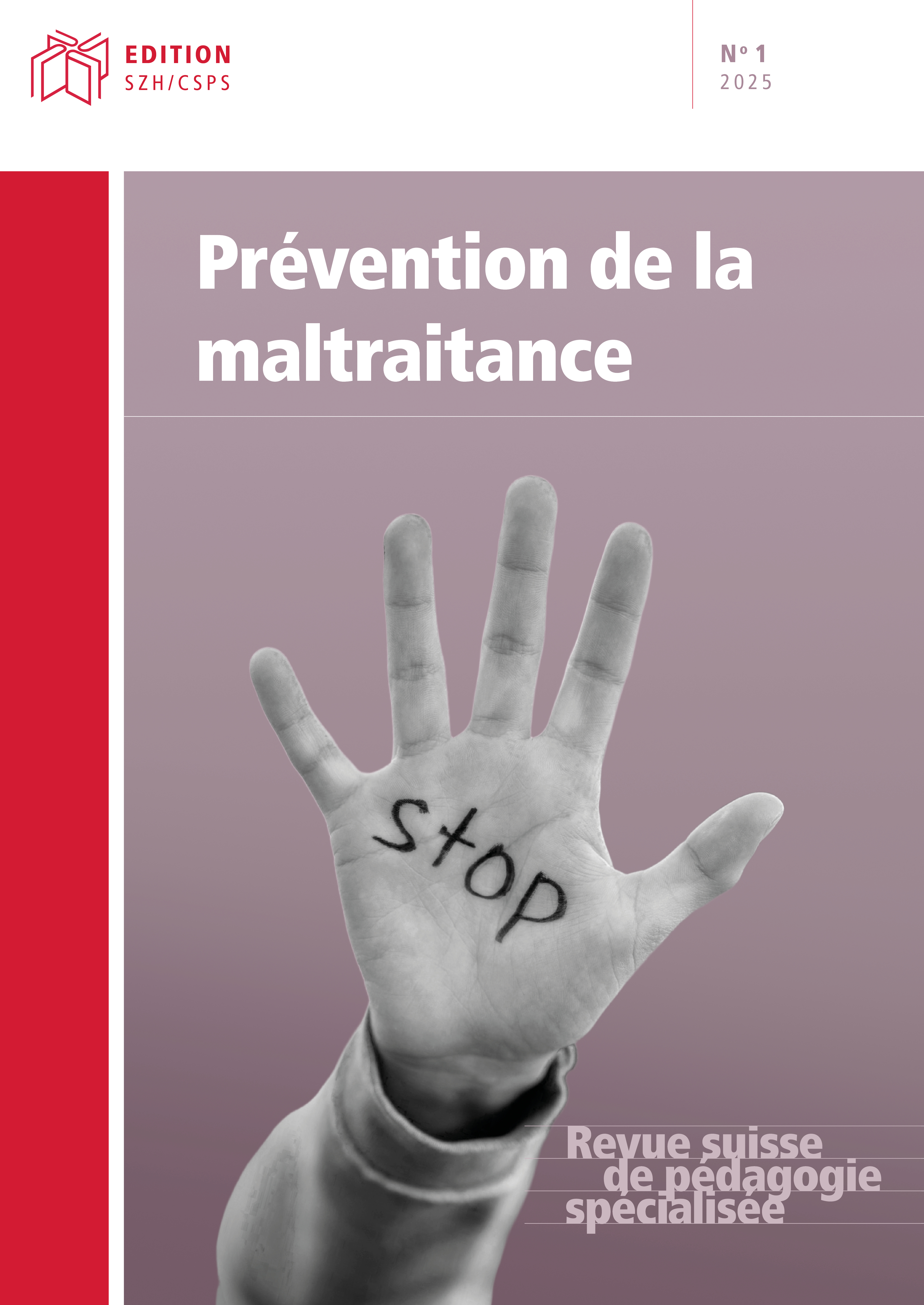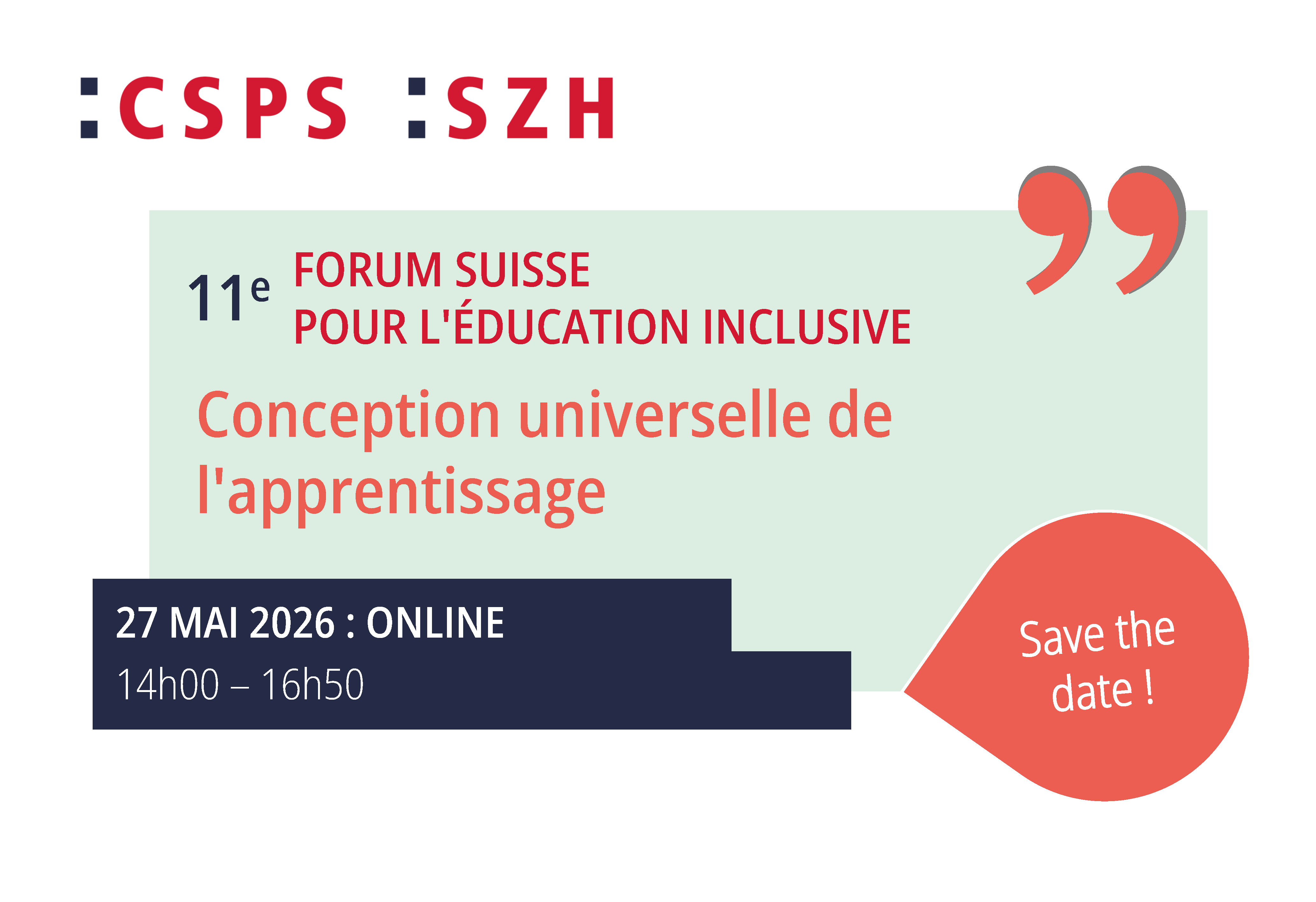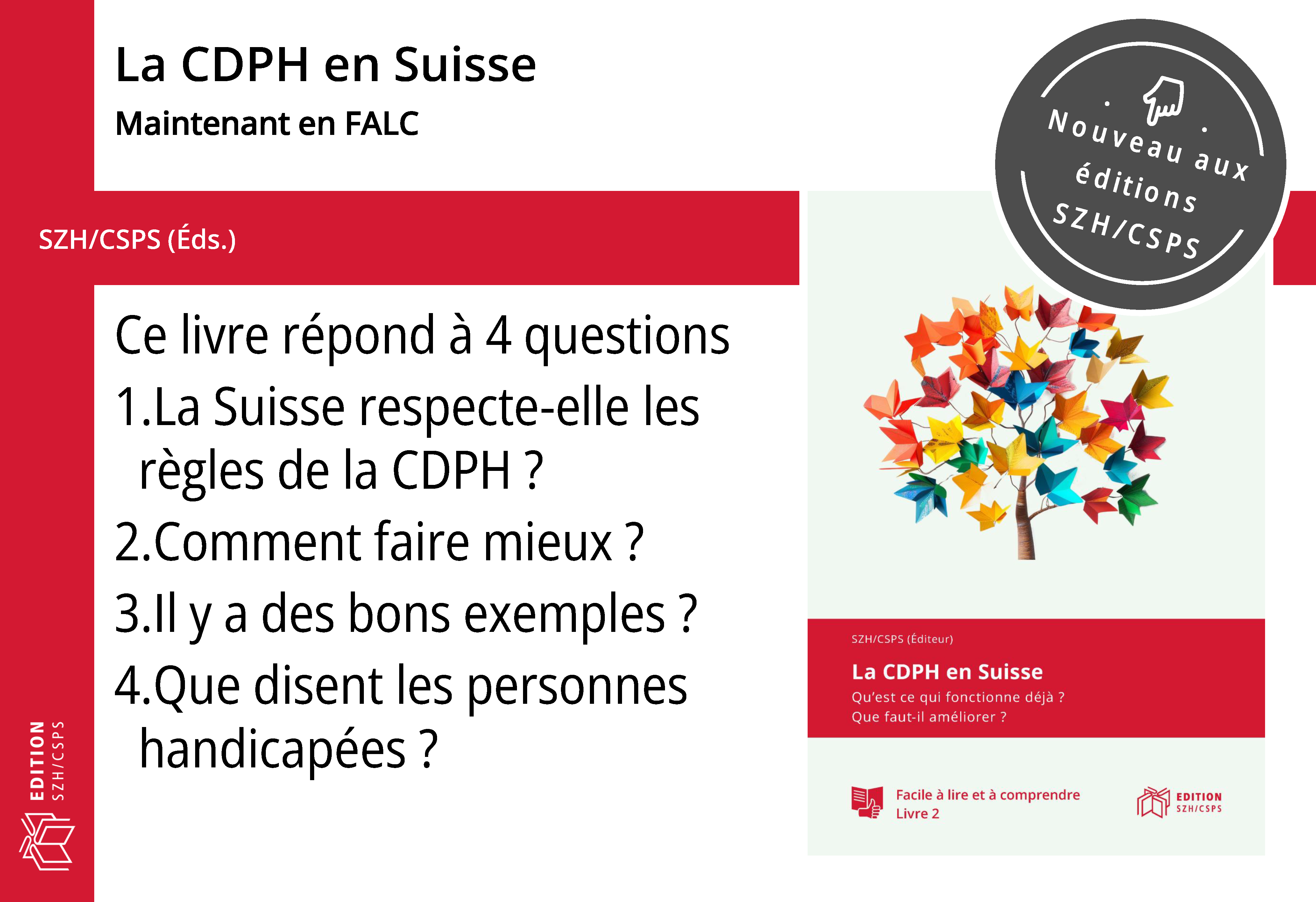Les blessures cachées
Maltraitance et déficience intellectuelle
DOI :
https://doi.org/10.57161/r2025-01-06Mots-clés :
maltraitance, déficience intellectuelle, état de stress post-traumatiqueRésumé
La maltraitance des personnes présentant une déficience intellectuelle constitue un véritable défi d’ordre social et psychologique. Cet article explore les conséquences psychologiques de cette violence interpersonnelle, dans le but de mieux l’identifier et d’élaborer des stratégies de prévention plus adaptées. Une meilleure compréhension de ce phénomène, conduisant à la mise en œuvre d'évaluations précoces et d'interventions psychologiques spécialisées, pourrait atténuer les effets dévastateurs de cette maltraitance, à la fois répandue et insidieuse. Cela pourrait contribuer à garantir le droit à la santé de cette population vulnérable.
Références
Amborski A., Bussieres E. L., Vaillancourt-Morel M. P., & Joyal C. C. (2022). Sexual violence against persons with disabilities: A meta-analysis. Trauma, Violence, & Abuse, 23(4), 1330–1343. https://doi.org/10.1177/1524838021995975
American Psychiatric Association. (2022). Manuel diagnostique et statistique des troubles mentaux (5e éd., texte révisé ; DSM-5-TR). Elsevier.
Badakhshiyan, S. S., Naghavi, A., & Jazayeri, R. A. (2024). Systematic Review Overview: Violence Against Adults with Disabilities. Trauma, violence & abuse, 25(5), 3504–3514. https://doi.org/10.1177/15248380241253034
Beail, N. (2002). Interrogative Suggestibility, Memory and Intellectual Disability. Journal of Applied Research in Intellectual Disabilities, 15(2), 129-137. https://doi.org/10.1046/j.1468-3148.2002.00108.x
Boyer, S. M., Caplan, J. E., & Edwards, L. K. (2022). Trauma-Related Dissociation and the Dissociative Disorders: Neglected Symptoms with Severe Public Health Consequences. Delaware journal of public health, 8(2), 78–84. https://doi.org/10.32481/djph.2022.05.010
Breslau, N., Chen, Q., & Luo, Z. (2013). The Role of Intelligence in Posttraumatic Stress Disorder: Does it Vary by Trauma Severity? PLOS ONE, 8(6), 1-4. https://doi.org/10.1371/journal.pone.0065391
Brewin, C. R., Andrews, B., & Valentine, J. D. (2000). Meta-analysis of risk factors for posttraumatic stress disor-der in trauma-exposed adults. Journal of consulting and clinical psychology, 68(5), 748–766. https://doi.org/10.1037//0022-006x.68.5.748
Catani, C., & Sossalla, I. M. (2015). Child abuse predicts adult PTSD symptoms among individuals diagnosed with intellectual disabilities. Frontiers in Psychology, 6, 1600. https://doi.org/10.3389/fpsyg.2015.01600
Ceschi, G. (2016). Stress post-traumatique. Encyclopædia Universalis. http://www.universalis.fr/encyclopedie/stress-post-traumatique/
Ceschi, G., & Van der Linden, M. (2008). Une approche cognitive de l'état de stress post-traumatique. In M. Van der Linden & G. Ceschi (Eds.), Traité de Psychopathologie Cognitive : Etats psychopathologiques (Vol. 2, pp. 55-108). Solal.
Ceschi, G., Billieux, J., Hearn, M., Fuerst, G., & Van der Linden, M. (2014). Trauma exposure interacts with im-pulsivity in predicting emotion regulation and depression. European Journal of Psychotraumatology, 5(1). https://doi.org/10.3402/ejpt.v5.24104
Ceschi, G., Hearn, M., Billieux, J., & Van der Linden, M. (2011). Lifetime exposure to adverse events and rein-forcement sensitivity in obsessive–compulsive prone individuals. Behaviour Change, 28(2), 75–86. https://doi.org/10.1375/bech.28.2.75
Child Welfare Information Gateway. (2018). The risk and prevention of maltreatment of children with disabilities. U.S. Department of Health and Human Services, Children’s Bureau. https://www.childwelfare.gov/resources/risk-and-prevention-maltreatment-children-disabilities/
Child Welfare Information Gateway. (2023). 2023/2024 Prevention Resource Guide. U.S. Department of Health and Human Services, Children’s Bureau. https://www.childwelfare.gov/resources/20232024-prevention-resource-guide/
Daveney, J., Matcham, F., Hassoitis, A., & Katona, C. (2019). Ascertainment and prevalence of post-traumatic stress disorder (PTSD) in people with intellectual disabilities. Journal of Mental Health Research in Intellec-tual Disabilities, 12(3–4), 211–233. https://doi.org/10.1080/19315864.2019.1637979
Ehlers, A., & Clark, D. M. (2000). A cognitive model of posttraumatic stress disorder. Behaviour research and ther-apy, 38(4), 319–345. https://doi.org/10.1016/s0005-7967(99)00123-0
Fernandes, V., & Osório, F. L. (2015). Are There Associations Between Early Emotional Trauma and Anxiety Dis-orders? Evidence from a Systematic Literature Review and Meta-Analysis. European Psychiatry, 30(6), 756–764. https://doi.org/10.1016/j.eurpsy.2015.06.004
Gérard, M. (2024). Repères pour prévenir la maltraitance. In L. Beaudelot, Q. Bullens, D. Cordier, D. Debluts, F. Dubois, P. Dufromont, J. Dupont, N. Ferrard, J. Fraiteur, F. Guillaume, I. Godeau, A. Heine, F. Hoornaert, P. Humblet, D. Huppert, P. Jadin, V. Magos, C. Meersseman, F. Merzguioui, … J. Vilet (Eds.), Points de re-père pour prévenir la maltraitance (11e ed., pp. 5-28). Yapaka. https://www.yapaka.be/livre/livre-points-de-repere-pour-prevenir-la-maltraitance
Goldstein, R. B., Smith, S. M., Chou, S. P., Saha, T. D., Jung, J., Zhang, H., Pickering, R. P., Ruan, W. J., Huang, B., & Grant, B. F. (2016). The epidemiology of DSM-5 posttraumatic stress disorder in the United States: results from the National Epidemiologic Survey on Alcohol and Related Conditions-III. Social psychiatry and psy-chiatric epidemiology, 51(8), 1137–1148. https://doi.org/10.1007/s00127-016-1208-5
Hoogstad, A., Mevissen, L., Kraaij, M., & Didden, R. (2023). Assessment of posttraumatic stress disorder in adults with severe or moderate intellectual disability: A Pilot study using the diagnostic interview trauma and stressors – severe intellectual disability. Journal of Mental Health Research in Intellectual Disabilities, 17(4), 297-317. https://doi.org/10.1080/19315864.2023.2223522
Hughes, K., Bellis, M. A., Jones, L., Wood, S., Bates, G., Eckley, L., & Officer, A. (2012). Prevalence and risk of vio-lence against adults with disabilities: A systematic review and meta-analysis of observational studies. The Lancet, 379(9826), 1621–1629. https://doi.org/10.1016/S0140-6736(11)61851-5
Jones, L., Bellis, M. A., Wood, S., Hughes, K., McCoy, E., Eckley, L., Bates, G., Mikton, C., Shakespeare, T., & Of-ficer, A. (2012). Prevalence and risk of violence against children with disabilities: A systematic review and meta-analysis of observational studies. The Lancet, 380(9845), 899–907. https://doi.org/10.1016/S0140-6736(12)60692-8
Jopp, D. A., & Keys, C. B. (2001). Diagnostic overshadowing reviewed and reconsidered. American Journal on Mental Retardation, 106(5), 416–433. https://doi.org/10.1352/0895-8017(2001)106<0416:DORAR>2.0.CO;2
Kooijmans, R., Mercera, G., Langdon, P. E., & Moonen, X. (2022). The adaptation of self-report measures to the needs of people with intellectual disabilities: A systematic review. Clinical Psychology Science & Practice, 29(3), 250–271. https://doi.org/10.1037/cps0000058
Laney, C., & Loftus, E. F. (2005). Traumatic memories are not necessarily accurate memories. The Canadian jour-nal of psychiatry, 50(13), 823–828. https://doi.org/10.1177/070674370505001303
McNally, P., Taggart, L., & Shevlin, M. (2021). Trauma experiences of people with an intellectual disability and their implications: A scoping review. Journal of applied research in intellectual disabilities, 34(4), 927–949. https://doi.org/10.1111/jar.12872
McNally, R. J. (2012). Explaining « memories » of space alien abduction and past lives: An experimental psycho-pathology approach. Journal of Experimental Psychopathology, 3(1), 2–16. https://doi.org/10.5127/jep.017811
Mevissen, L., Didden, R., & De Jongh, A. (2018). Handleiding Diagnostisch Interview Trauma en Stressoren – Licht Verstandelijke Beperking [Manual Diagnostic Interview Trauma and Stressors – Mild Intellectual Disabilities]. Ac-care Child Study Center.
Mevissen, L., Didden, R., De Jongh, A., & Korzilius, H. (2020). Assessing posttraumatic stress disorder in adults with mild intellectual disabilities or borderline intellectual functioning. Journal of Mental Health Research in Intellectual Disabilities, 13(2), 110–126. https://doi.org/10.1080/19315864.2020.1753267
Mevissen, L., Didden, R., Korzilius, H., & De Jongh, A. (2016). Assessing posttraumatic stress disorder in children with mild to borderline intellectual disabilities. European Journal of Psychotraumatology, 7(1), 29786. https://doi.org/10.3402/ejpt.v7.29786
National Institute for Health and Care Excellence [NICE]. (2018). Post-traumatic stress disorder. [Nice guideline 116]. https://www.nice.org.uk/guidance/ng116/chapter/Recommendations#care-for-people-with-ptsd-and-complex-needs
Nieuwenhuis, J. G., Smits, H. J. H., Noorthoorn, E. O., Mulder, C. L., Penterman, E. J., & Nijman, H. L. (2019). Not recognized enough: The effects and associations of trauma and intellectual disability in severely mental-ly ill outpatients. European Psychiatry, 58, 63–69. https://doi.org/10.1016/j.eurpsy.2019.02.002
Palusci, V. J., Datner, E., & Wilkins, C. (2015). Developmental disabilities: Abuse and neglect in children and adults. International Journal of Child Health and Human Development, 8(4), 407-428. https://www.proquest.com/openview/302504688211bde35543ed6409bc18c7/1?pq-origsite=gscholar&cbl=2034871
Resick, P. A., Bovin, M. J., Calloway, A. L., Dick, A. M., King, M. W., Mitchell, K. S., Suvak, M. K., Wells, S. Y., Stir-man, S. W., & Wolf, E. J. (2012). A critical evaluation of the complex PTSD literature: Implications for DSM-5. Journal of traumatic stress, 25(3), 241–251. https://doi.org/10.1002/jts.21699
Snoek, A., Nederstigt, J., Ciharova, M., Sijbrandij, M., Lok, A., Cuijpers, P., & Thomaes, K. (2021). Impact of comorbid personality disorders on psychotherapy for post-traumatic stress disorder: systematic review and meta-analysis. European Journal of Psychotraumatology, 12(1), 1929753. https://doi.org/10.1080/20008198.2021.1929753
Uher, R., & Zwicker, A. (2017). Etiology in psychiatry: embracing the reality of poly-gene-environmental causa-tion of mental illness. World Psychiatry, 16(2), 121-129. https://doi.org/10.1002/wps.20436
Versluis, A., Mevissen, L., de Jongh, A., Schuengel, C., & Didden, R. (2024). Reliability and Validity of the Diagnos-tic Interview Trauma and Stressors - Intellectual Disability in Adults with Mild Intellectual Disabilities or Borderline Intellectual Functioning. Journal of Mental Health Research in Intellectual Disabilities, 1–17. https://doi.org/10.1080/19315864.2024.2416694
Publiée
Comment citer
Numéro
Rubrique
Licence
© Ceschi Grazia 2025

Ce travail est disponible sous la licence Creative Commons Attribution 4.0 International .




